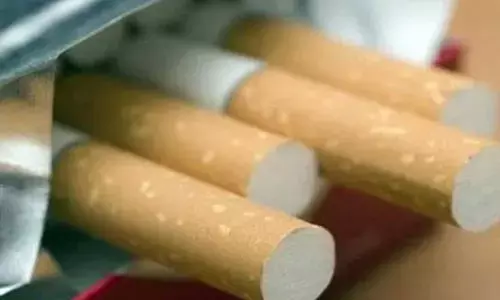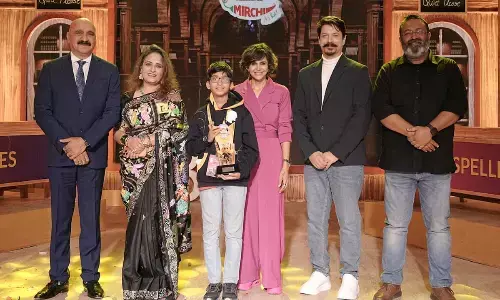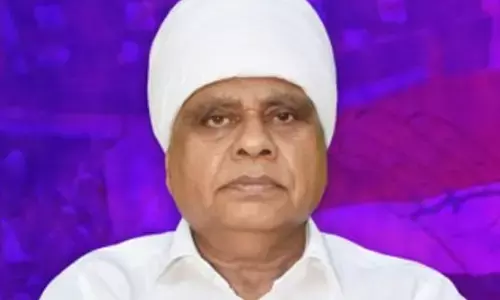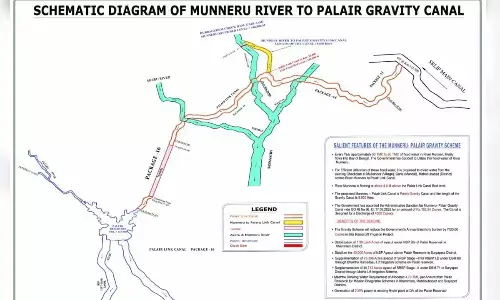MGNREGS in Bangaru Telangana
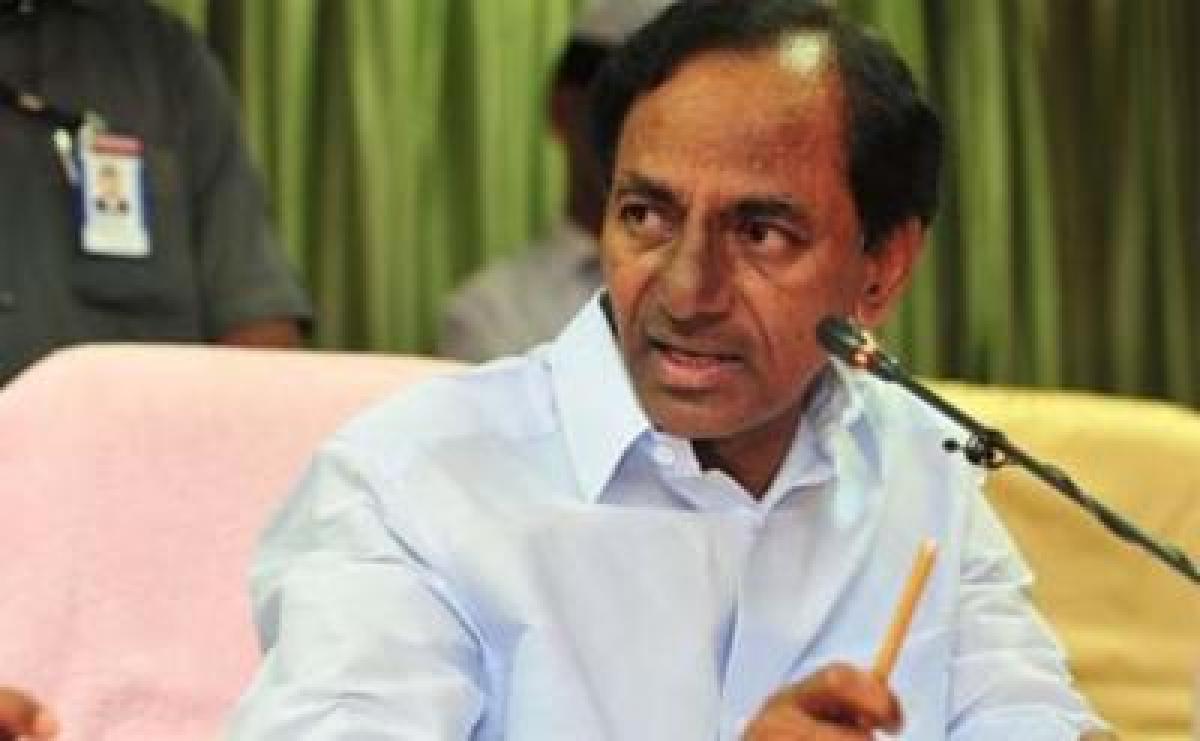
The Mahatma Gandhi National Rural Employment Guarantee Act (NREGA) was notified on September 2005. The Act envisages to provide a legal guarantee of 100 days wage employment in a financial year to every rural household, whose adult members volunteer to do unskilled work at notified wage rate.
Mahatma Gandhi National Rural Employment Guarantee Scheme (MGNREGS)
The Mahatma Gandhi National Rural Employment Guarantee Act (NREGA) was notified on September 2005. The Act envisages to provide a legal guarantee of 100 days wage employment in a financial year to every rural household, whose adult members volunteer to do unskilled work at notified wage rate. The objective of the act is to create durable productive assets in the process while providing wage employment opportunities in rural areas and proactively ensuring social inclusion and strengthen Panchayat Raj Institutions.
IMPLEMENTATION OF MGNREGS IN TELANGANA
• MGNREGS is in implementation in 8517 Gram Panchayats in 436 mandals of 9 districts.
• 55 lakh job cards issued covering 1.3 crore wage seekers since the inception of the scheme.
PERFORMANCE DURING 2015-16
| Particluars | Performance during 2015-16 |
| No. of Job cards issued | 56,09,730 |
| Households reported (Lakhs) | 24.61 |
| Person-days generated (crore) | 11.92 |
| Average Wage Rate (Rs.) | 130.94 |
| Wage expenses (Rs. Crore) | 1561 |
| Material expenses (Rs.crore) | 36.08 |
| Administrative Expenses (Rs.crore) | 160.75 |
| Total Expenses (Rs.crores) | 2071.48 |
EXPENDITURE ON KEY WORKS TAKEN UP DURING 2015-16
• Rs. 312 Cr expenditure incurred towards 2.13 lakh works related to the land development of SC / ST / Small & Marginal farmers.
• Under Telangana Ku Haritha Haaram project, Rs. 237.8 Cr expenditure incurred for raising of 35 Cr seedlings in 4144 nurseries. 6.3 Cr seedlings planted by incurring an expenditure of Rs. 149.9 Cr.
• Under rural connectivity project, Rs. 199 Cr incurred by taking up 45,056 works.
• Rs. 116.2 Cr incurred towards 37,720 drainage line treatment works.
• 84,833 irrigation drains and channels work taken up with an expenditure of Rs. 96.7 Cr.
• For a comprehensive development of SC / ST colonies, Rs. 49 Cr incurred for 11,047 works.
• Rs. 36 Cr incurred towards 2.4 lakh works under rural sanitation project.
• Rs. 30.3 Cr incurred for 2031 works related to roads to unconnected habitations.
KEY INITIATIVES
Following are the key initiatives for effective Implementation of MGNREGS
• Rashtriya Grameen Abhivruddi Samacharam (RAGAS): An end-to-end transaction based online application developed for effective implementation of MGNREGS.
• Electronic Fund Transfer System (eFMS): Electronic Fund Transfer system (eFMS) has been established with the objective of putting in place an efficient mechanism to generate transmission of funds through online money transfers. This system helps in avoiding the parking of funds in some places and empowers all blocks and Panchayats to access funds uninterruptedly.
• Electronic Muster & Measurement System (e-MMS): e-MMS is a mobile phone-based technology that has been customized for the MGNREGS field staff which includes mobile applications like Demand Capture, Work Allocation, e-Muster, e-Measurement, e-Check Measurement and e-Muster Verification.
• Electronic Fund Transfer System (eFMS): Electronic Fund Transfer system (eFMS) has been established with the objective of putting in place an efficient mechanism to generate transmission of funds through online money transfers. The payments are directly made into the accounts of the wage seekers.
• Srama Shakti Sanghas (SSS groups): All serious labourers are grouped into SSS groups with a group size of 10 to 30 with an objective to ensure 100 days of wage employment to all its members and for ensuring transparency.
• Grievance Redressal / Call Centre: A call centre with a toll-free number 1800-200-1001 established to register complaints on various issues in the implementation of the scheme.
• Special Provisions to PwDs: Separate groups (Vikalangula SSS) are formed for persons with disabilities and provisions like 30% additional wage rate, preference to PwDs in the selection of mates, a separate schedule of rates for PwDs and exclusive works for PwDs identified.
• Chenchu Special Project: Under Chenchu Special project, each Chenchu wage-seeker is provided minimum 15 days of work every month for the whole year under MGNREGS. 50% of wage in advance & 50% after completion of allocated works is paid to maintain cash inflow among Chenchu. For the implementation of Chenchu special project, an exclusive Chenchu office and staff deputed to work under ITDA Mannanur of Mahabubnagar.
KEY DECISIONS TAKEN DURING THE YEAR:
• Wage rate enhanced to Rs. 180 from Rs. 169 w.e.f. 01/04/2015.
• The government of India has approved additional 50 days of wage employment to the households which have completed 100 days in 231 droughts declared mandals.
• In convergence with Panchayat Raj Dept., under Gram Jyothi, it is proposed to take up soak pits, solid waste management works.
• 1000 Anganwadi centers are proposed in convergence with Women and Child Welfare Dept. during the year.
• Livelihoods In Full Employment (LIFE) Project: 2.05 lakh rural youth to be supported under LIFE project for ensuring sustainable livelihood by imparting job placement skill, providing self-employment and livelihoods support.
Society for Elimination of Rural Poverty
Society for the Elimination of Rural Poverty (SERP) with the assistance from the World Bank, has mobilised the women in rural areas to form self-help groups in the early 2000s. This network of Community Based Organizations (CBOs) helped leverage and promote financial inclusion, which was then expanded to include land-based livelihood, skills training, livelihoods support, access to Government programs, and initiatives to improve health and education outcomes.
Nearly 90 percent of the poor households in the State are members of these community institutions. Currently 47,50,832 women have formed 4,36,150, Self Help Groups (SHGs) at the Village / Habitation levels. The SHGs have federated at the village level to form village organizations (VO) and VOs have federated at a Mandal level to form Mandal Mahila Samakhya (MMS). Currently, there are 18,277 VOs and 438 MMS. These Mandal Mahila Samakhyas federated at District Level to form 9 Zilla Samakhyas.
Telangana Palle Pragathi Project
Telangana Palle Pragathi project (Telangana Rural Inclusive Growth Project – TRIGP) focuses on enabling the institutional platforms of the poor to achieve ‘inclusive growth’ by expanding and diversifying livelihood opportunities and ‘improved quality’ of life through human development initiatives and access to entitlements, particularly for the poorest of poor rural households. The total cost for the proposed Project has been estimated at Rs 642.00 Crore with the Government share of Rs.192.00 Crore and Rs.450 Crore funded by the World Bank. The project period for implementation is 5 years starting from February-2015 to February-2020.
The beneficiaries targeted are small and marginal farmers and the SC/ST households from communities in the 150 most backward Mandals in the newly created State of Telangana, covering about 6,000 villages. There are five (5) components for the project, Value Chain development, Human Development, Palle Pragathi Seva Kendra, Information Communication & Technology (ICT) Partnerships and Project Implementation Support.
Financial Access – Bank Linkage
Through SHG Movement, savings has been taken up as a mass movement by women. These SHGs are taking small loans through Bank Linkage, out of the corpus available with the group. The SHG Bank Linkage intention is to facilitate the poor including disadvantaged groups and communities to access credit facility, seamlessly, from the banks to improve their Livelihoods.
From a meagre amount of Rs. 32.03 Crs Bank Linkages in the FY 1999-2000 in Telangana state to Rs. 3582.76 Crs in the FY 2014-15 is an astounding success story. Consistently, the Telangana has been in the forefront in SHG Bank Linkage programme.
Table : Bank Linkage Progress in Telangana:
| Year | Bank Linkage | Per SHG Finance (Rs.) | |
| No. of Groups | Amount Rs. in Cr | ||
| 2013-14 | 1,68,366 | 2,972.20 | 1,77,422 |
| 2014-15 | 1,88,838 | 3,582.76 | 1,95,636 |
| 2015-16 (up to Nov’ 2015) | 79,944 | 2,085.75 | 2,60,901 |
Stree Nidhi
Stree Nidhi has earned a unique place in delivering of credit to poor, presiding timely and appropriate credit. The measure will be taken to portion the same as a livelihood promoting institutions to augment the income of the poor.
It is proposed to finance Rs 1985.87 crs. during the year 2015-16. There are 450 Mandal Mahila Samakhyas (MMS) of SHGs in association with Government of Telangana have promoted “STREE NIDHI Credit Co-operative Federation Ltd.” to address the issues of inadequate fiance and to ensure timely availability of credit, preferably within 48 hours, for meeting emergency and other needs of the poorest of the poor. Rs.53,992.90 Crores were disbursed to 2,52,896 members of 69,750. SHGs in 9,653 VOs in 423 mandals for the FY 2015-16 up to December 2015.
G.Rajendera Kumar



